Description
Naoise Dolan’s story of 22-year-old Ava who moved from Ireland to Hongkong, figuring out her life’s new advances. As an English teacher who befriends Julian, a rich English banker six years her senior, lonely and broke Ava moves in with him. Julian takes care of all her needs, but when he is sent to work in London for a few months, Ava falls for Edith, a lawyer, and a love triangle begins.
However, a blurb states, “The dynamic is more complex, with Ava first obsessing over Julian, although he makes it very clear that he doesn’t love her, and later entering a relationship with 22-year-old Edith (full name: Edith Zhang Mei Ling) in which they both love each other. Dolan mainly explores ambiguous emotional states and that’s what makes the novel so intriguing. While none of the characters are particularly likable, all of them are interesting and somehow relatable. It is masterful how Dolan plays with the reader’s perceptions by using flashbacks that shed new light on the individual characters’ behaviors and decisions, thus questioning the fairness of the judgment one might initially pass. On top of that, it gradually becomes clear that Ava is an unreliable narrator, and that her descriptions might be accurate from her point of view, but others strongly disagree.
Dolan adds more layers by contrasting aspects of culture and class: Ava ponders her own Irish identity, Julian’s Englishness, and the situation in Hongkong (where Edith was born), often referring to political issues like same-sex marriage, abortion, colonialism, money, and attitudes towards class. All characters interact with ex-pats from all over the world, drawing in even more cultural perspectives. As Ava teaches English, the language itself and what it says about the speaker’s education, class, and nationality plus what kind of associations it evokes also play an important role in the text.
Ava, Julian and Edith try to navigate the impositions life has in store for them, all of them actively tackle some challenges and (willingly) remain adrift in other fields- the variety of options open to those characters are satirized in Ava’s penchant for thoughts and descriptions in multiple-choice, presenting the reader with the possibility a), b), and sometimes even c). These characters are messy and faulty, and especially the relationship between Ava and Julian is rather toxic (Julian to Ava: “To be clear Ava: we’re both dead behind the eyes, at least I can pay rent?”; Ava about Julian: “He doesn’t want anyone to like him just for him (…) He wouldn’t know what to do with the information.”), but not free of real affection.
The novel works with many ironic, laconic, deadpan remarks (“We agreed it was an exciting time to be alive”) – in this, Dolan resembles German writer Heinz Strunk who also knows how to say one thing while at the same time conveying something completely different. Many of Ava’s sentences might be clever, but there is often a sadness to them, rooted in the impulse to hide a feeling of emptiness or disorientation. I really enjoyed the recognizable, edgy tone of the text. The highly under-complex politics are sometimes a little annoying though and every German will find the mention of Martin Schulz hilarious, although it’s most likely not intended to be funny.
This novel already caused a stirring way before its publication when it was the hot item in a seven-way bidding war (you can read about it in the Independent or The Bookseller, e.g.). My guess is that there will be a lot of comparisons to Sally Rooney‘s work, and they do make sense: There is a millennial sensibility to it, and some readers will find that annoying, just as in the case of Rooney. But these two Dubliners won’t mind, as their books will sell copies and scoop up awards.
Debut novelist Naoise Dolan tells the story of 22-year-old Ava who just moved from Ireland to Hongkong, trying to figure out what to do with her life. She holds a poorly paid job as an English teacher and befriends Julian, a rich English banker six years her senior. Lonely and broke, Ava moves in with him, Julian pays for pretty much everything and they start having sex. But when Julian is sent to work in London for a few months, Ava falls for Edith, a young lawyer…
It’s questionable whether Dolan really writes about a “love triangle” as the blurb states: The dynamic is more complex, with Ava first obsessing over Julian, although he makes it very clear that he doesn’t love her, and later entering a relationship with 22-year-old Edith (full name: Edith Zhang Mei Ling) in which they both love each other. Dolan mainly explores ambiguous emotional states and that’s what makes the novel so intriguing. While none of the characters are particularly likeable, all of them are interesting and somehow relatable. It is masterful how Dolan plays with the reader’s perceptions by using flashbacks that shed a new light on the invidual characters’ behaviors and decisions, thus questioning the fairness of the judgement one might initially pass. On top of that, it gradually becomes clear that Ava is an unreliable narrator, and that her descriptions might be accurate from her point of view, but that others strongly disagree.
Dolan adds more layers by contrasting aspects of culture and class: Ava ponders her own Irish identity, Julian’s Englishness and the situation in Hongkong (where Edith was born), often referring to political issues like same-sex-marriage, abortion, colonialism, money, and attitudes towards class. All characters interact with expats from all over the world, drawing in even more cultural perspectives. As Ava teaches English, language itself and what is says about the speaker’s education, class, and nationality plus what kind of associations it evokes also plays an important role in the text.
As Ava, Julian and Edith try to navigate the impositions life has in store for them, all of them actively tackle some challenges and (willingly) remain adrift in other fields- the variety of options open to those characters are satirized in Ava’s penchant for thoughts and descriptions in multiple choice, presenting the reader with possibility a), b), and sometimes even c). These characters are messy and faulty, and especially the relationship between Ava and Julian is rather toxic (Julian to Ava: “To be clear Ava: we’re both dead behind the eyes, at least I can pay rent?”; Ava about Julian: “He doesn’t want anyone to like him just for him (…) He wouldn’t know what to do with the information.”), but not free of real affection.
The novel works with many ironic, laconic, deadpan remarks (“We agreed it was an exciting time to be alive”) – in this, Dolan resembles German writer Heinz Strunk who also knows how to say one thing while at the same time conveying something completely different. Many of Ava’s sentences might be clever, but there is often a sadness to them, rooted in the impulse to hide a feeling of emptiness or disorientation. I really enjoyed the recognizable, edgy tone of the text. The highly undercomplex politics are sometimes a little annoying though and every German will find the mention of Martin Schulz hilarious, although it’s most likely not intended to be funny.
This novel already caused a stir way before its publication when it was the hot item in a seven-way bidding war (you can read about it in the Independent or The Bookseller, e.g.). My guess is that there will be a lot of comparisons to Sally Rooney‘s work, and they do make sense: There is a millennial sensibility to it, and some readers will find that annoying, just as in the case of Rooney. But these two Dubliners won’t mind, as their books will sell copies and scoop up awards.
You can listen to an interview with Naoise here, and you can listen to their podcast review here.
A reviewer’s take on the novel.

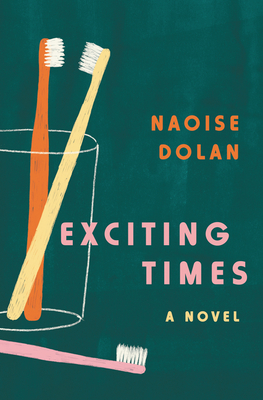
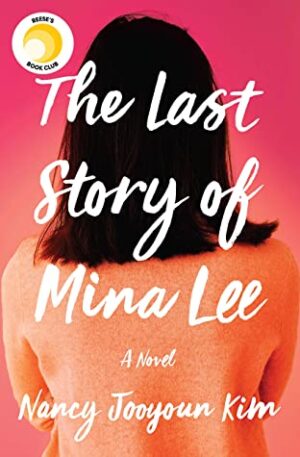


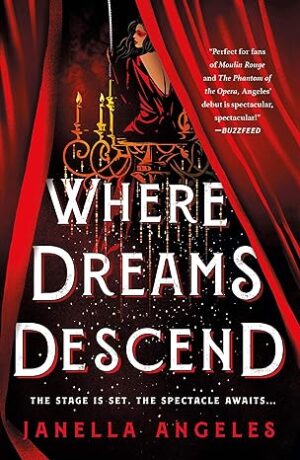

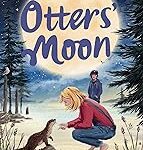
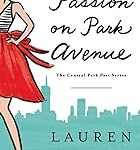

Reviews
There are no reviews yet.